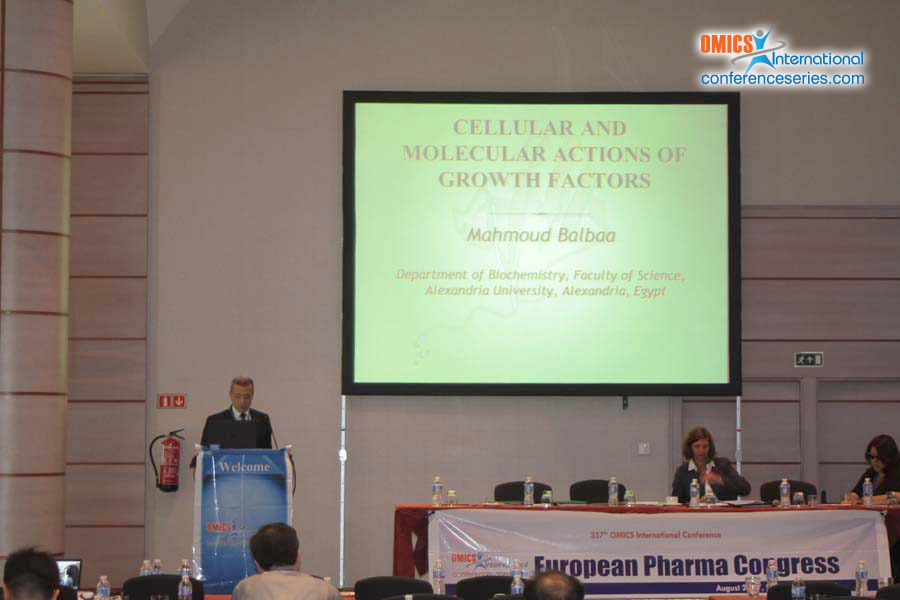
Biography
Biography: Mahmoud Balbaa
Abstract
Growth factors and their receptors are important signaling molecules, which are involved in the regulation of cell growth. There are different types of growth factors causing different responses and there are many overlapping responses from some types. Epidermal Growth Factor (EGF) stimulates the phosphorylation of the ribosomal protein S6, whereas the activation of its receptor (EGFR) is associated with metastasis, poor prognosis and chemotherapy resistance. This receptor is overexpressed in epithelial malignancies. Transforming Growth Factor Beta (TGFβ-1) is a multifunctional type involved in the regulation of growth and differentiation of both normal and transformed cells and over expressed in hepatocellular carcinoma tissues. A significantly higher serum level of EGF and TGF-β1was recently found in patients with hepatocellular carcinoma compared to their level in patients with chronic hepatitis C infection and control subjects. The levels of phosphorylated EGFR in hepatocellular carcinoma and chronic hepatitis C patients showed a highly significant difference between patients. Taken together, EGF and its phosphorylated form can be used as sensitive biomarkers for the diagnosis and prognosis of these diseases. In conclusion, various growth factors are involved in different biological processes, some of which have a clinical importance in disease.


